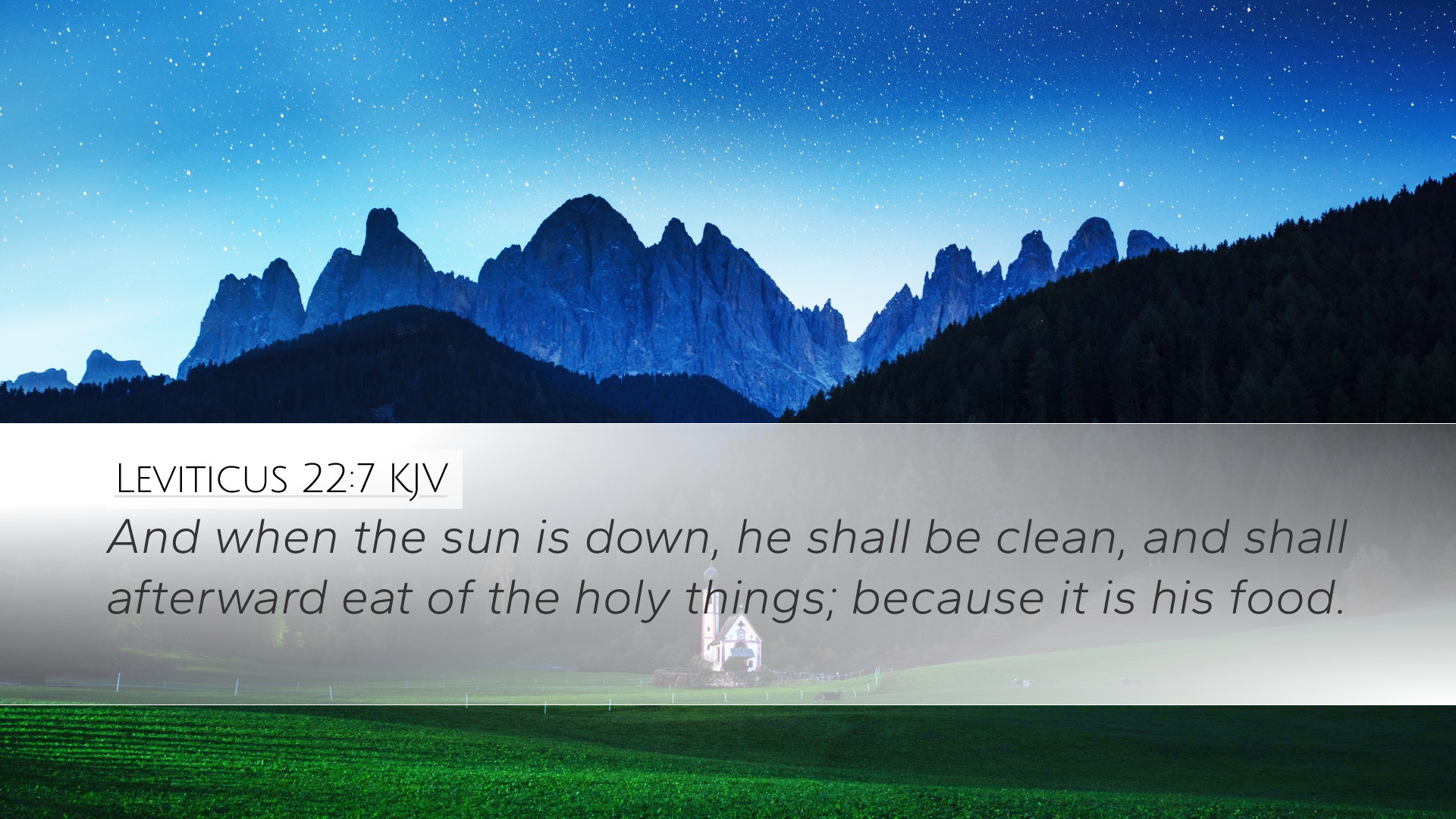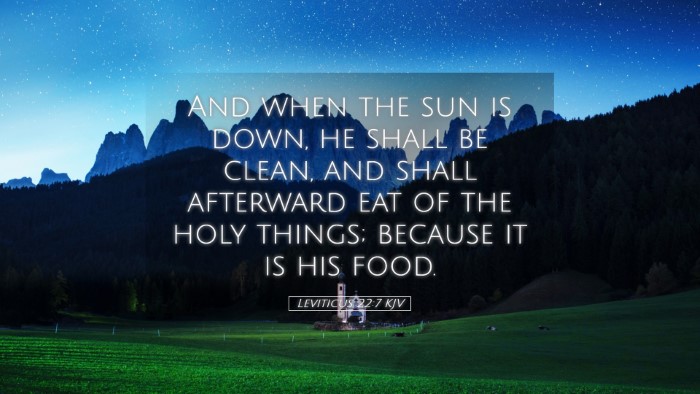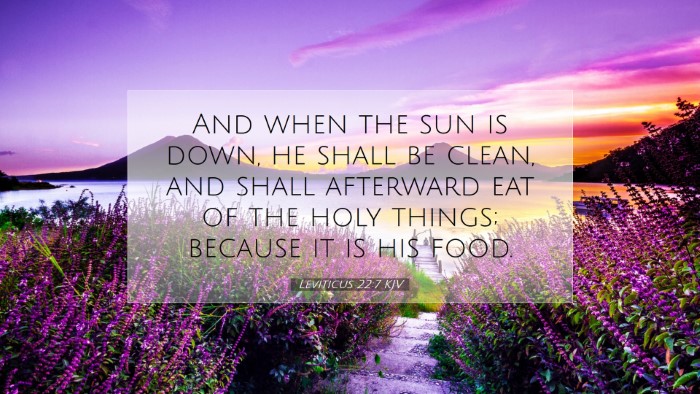Commentary on Leviticus 22:7
Leviticus 22:7 states:
"And when the sun goes down, he shall be clean, and afterward he may eat of the holy things, because it is his food."
Introduction
This verse is part of the laws concerning the privileges and responsibilities of the priests in dealing with holy things. Understanding the context and implications of this verse is crucial for pastors, students, theologians, and Bible scholars.
Contextual Analysis
The book of Leviticus serves as a manual for the priests and Levites of Israel. It outlines the framework of worship and the stipulations for purity, offerings, and holy conduct. The purity laws here directly address the qualifications for priests regarding their interaction with holy food.
Meaning of "Clean"
According to Commentators, Matthew Henry notes that the term "clean" in this context refers to a state of ritual purity. A priest must be ceremonially clean to partake of the sacred food.
Significance of Timing
The mention of "when the sun goes down" is particularly significant. Albert Barnes emphasizes that this indicates a transition from one day's obligations to another. This temporal aspect reinforces the notion that purity is not static but subject to conditions and time.
Theological Insights
This verse provides deep theological insights into holiness and separation. Adam Clarke explains that holiness requires a separation not only in actions but in timing. The priests’ food, which is sacred, must be consumed in a state of purity, reflecting a believer's need to live in holiness before God.
Christological Interpretation
The purity laws can also be viewed through a Christological lens. Just as the priests were to maintain cleanliness to partake in their duties, believers today are reminded of their renewed state through Christ, as highlighted by various commentators.
Symbolic Meanings
Furthermore, the verse underscores the importance of having a proper relationship with God to partake in His provisions. The food represents sustenance derived from living a life aligned with God’s directives.
Application and Implications
For today's audience, this verse speaks volumes about preparation and readiness to engage with what is sacred and holy. Both pastors and students can reflect on how these principles apply within their own communities and spiritual practices.
Spiritual Readiness
- Personal Reflection: Individuals are called to examine their lives regularly to ensure they are conducting themselves in a manner worthy of partaking in God's grace.
- Community Worship: Churches might consider the importance of collective purity and readiness as they gather for worship and communion.
Holiness in Practice
As highlighted by Matthew Henry, holiness is not just a status but an active state. It involves vigilant self-examination and accountability among believers.
Conclusion
Leviticus 22:7 serves as a reminder of the need for holiness among those chosen for spiritual leadership. Each aspect—from the concept of cleanliness to the timing of actions—culminates in a holistic view of spiritual readiness and communion with God. By examining this verse through a multifaceted lens, scholars and practitioners alike can extract profound truths about the nature of holiness, service, and divine expectation.


